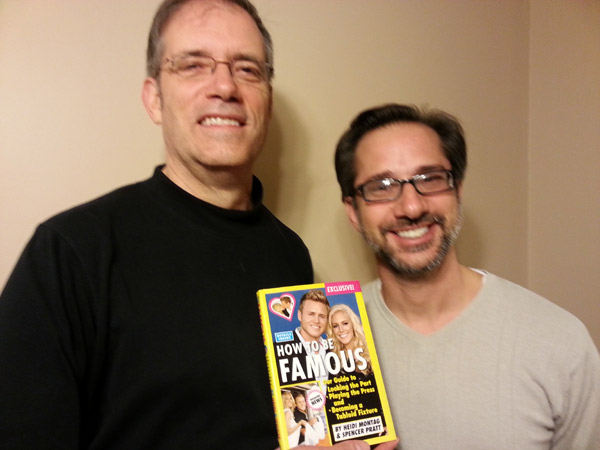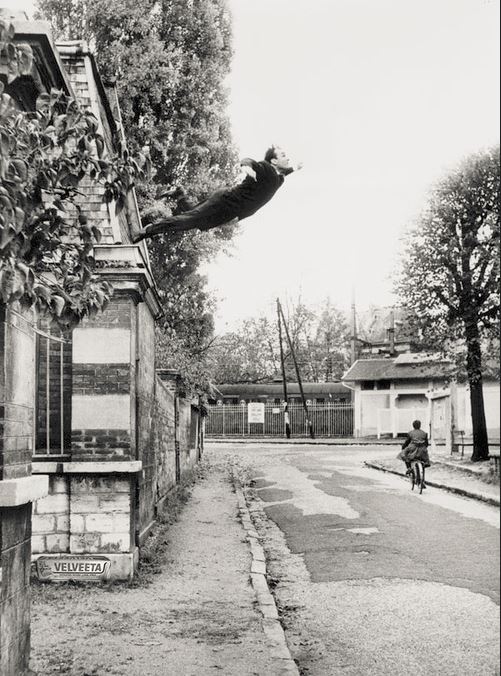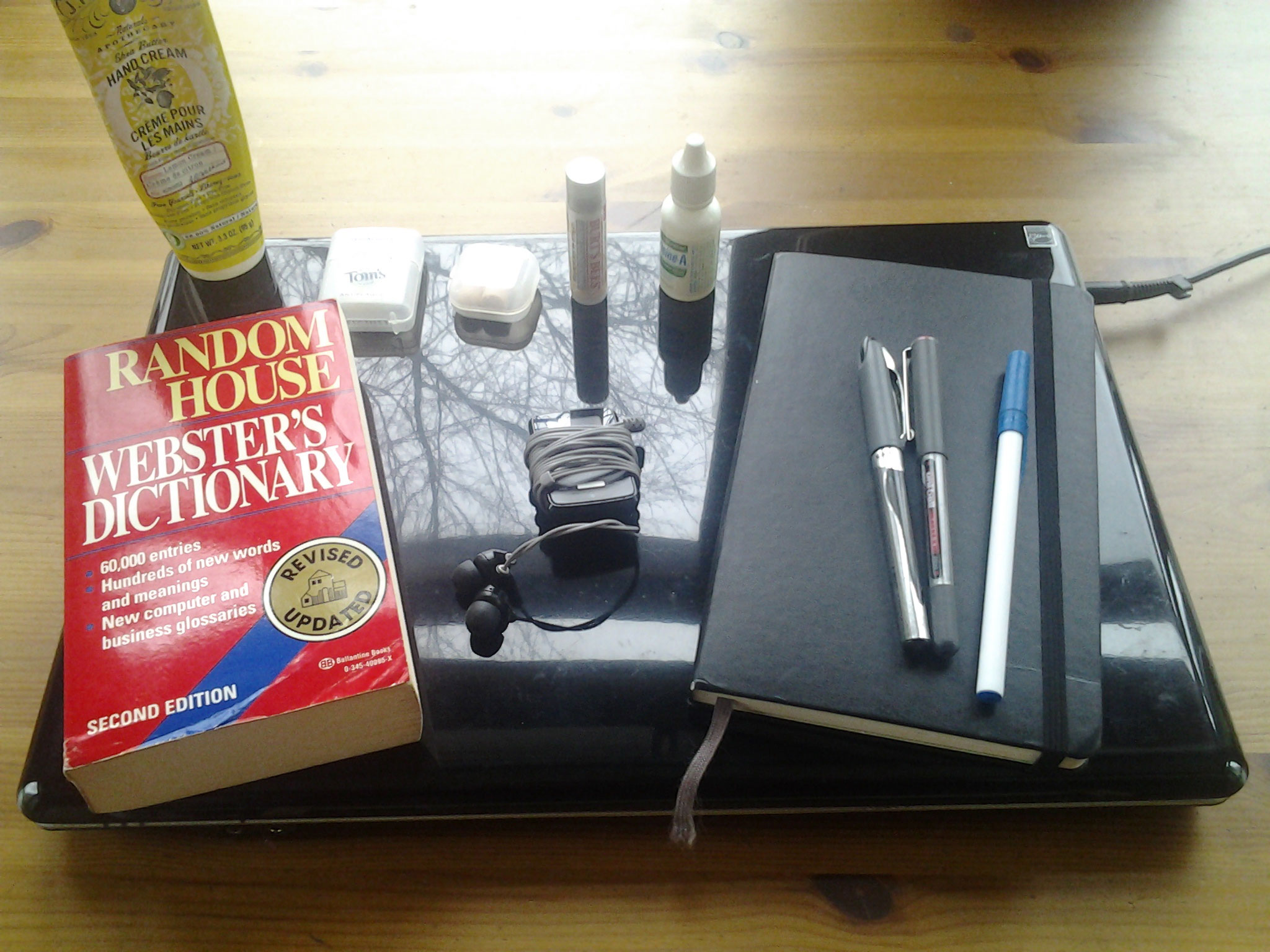Television and the Destruction of the Moral Universe
 I think a lot about television and the destruction of the moral universe. Once, I tweeted, “A whole moral universe can be created in the span of a movie, whereas television has room to prove that no universe is strictly moral.” I was thinking about punishment and permission. As with any expressive form, of course a television show has creators, akin to gods. Matthew Weiner as the ghost in the machine (I’m misusing the idiom, but I think it works). The trick is whether the writers/show-runner/whoever apply consistent moral principles of punishment and permission to the fates met by the characters.
I think a lot about television and the destruction of the moral universe. Once, I tweeted, “A whole moral universe can be created in the span of a movie, whereas television has room to prove that no universe is strictly moral.” I was thinking about punishment and permission. As with any expressive form, of course a television show has creators, akin to gods. Matthew Weiner as the ghost in the machine (I’m misusing the idiom, but I think it works). The trick is whether the writers/show-runner/whoever apply consistent moral principles of punishment and permission to the fates met by the characters.
Today, Joyce Carol Oates tweeted, “Please disclose whether the coldly reptilian wife of the ‘majority whip’ in House of Cards is eventually terribly punished.”
I can only guess that Joyce Carol Oates will not continue to watch unless she knows the House of Cards universe is as strictly moral as the Scottish play to which it pays overly stylized (if I’m being nice), at times fatuous (if I’m not) homage. In a moral universe, a pretty young virtuous thing might be tragically victimized, but she’s a kind of rapturous sacrifice, and her offenders get their comeuppance and presumably rot in hell, at least one of their own making.
When I looked up “moral universe” on Wikipedia, I saw what it (the god of Wikipedia) calls his “oft-quoted saying, ‘if God does not exist, then everything is permitted.'” Permitted by whom, Fyodor? Still seems like there is a god there doing the permitting, since a secular nation can still have laws. Just a really permissive god, too distracted or checked out to enact discipline, like a Nancy Botwin or Al Bundy of a god.
When Gabe Durham and Ken Baumann unveiled plans for Boss Fight Books, I thought a lot about my favorite game as a child, Oregon Trail. The god of that game was real and Puritanical. The game rewarded good sense, a bent toward commerce, dignity, and steadfastness. Showing the wherewithal to notice and treat the early signs of dysentery in your 8-year-old son tended to garner you more than just a cure, it seemed also to promise friendlier Indians at the ferry crossing and a glut of bigger, slower game at the hunting range.
But suppose you killed more buffalo than you could carry, more than your share. Suppose that case of dysentery set in faster than you could catch it, and say that 8-year-old who you sort of weirdly named after your current 7th-grade crush went and died on you, and you were faced with a choice of whether to honor your dead or not, and you elected to bear immediately on without providing what the game called “a proper burial.” That kind of waste, that kind of unchristian haste would meet with sudden and fearsome retribution from the hands of the Oregon Trail sovereign, and I’m talking much more than a broken axle or an ox wandered off. More like: “5 members of your party drowned.” “Your wagon has turned around.” “You lost: everyone in your wagon has died.”
Kate Durbin interviews Rob Wittig & Mark C. Marino of “Tempspence”

In January 2013, reality television star Spencer Pratt offered use of his official Twitter account to electronic literature writers Mark Marino and Rob Wittig while he was filming Celebrity Big Brother in London. The result was a netprov (networked improv narrative) project in which a fictional British poet supposedly hijacked Spencer’s phone and identity, was then unmasked, and began to promote his own poetry. The fictional British poet wound up encouraging Spencer’s followers to write their own poems. Originally titled “Reality,” the project was dubbed Temporary Spencer or “Tempspence” by fans.
As someone who follows and re-tweets celebrities on Twitter for my own conceptual Twitter project, I came across Tempspence naturally, as I followed and re-tweeted Spencer Pratt already. When Spencer / Temspence tweeted that he was buying his girlfriend Heidi Montag my collaborator Amaranth Borsuk’s digital poetry book Between Page and Screen, the top of my head exploded, in a post-Dickinson-cyberspace kind of way. My own transcription project of an episode of The Hills made Tempspence particularly fascinating to me, since I’d been studying the multi-faceted character of Spencer Pratt for a long time. And of course I cannot resist any project that implodes the false distance between mediums / worlds normally considered totally disparate, such as reality TV and avant garde literature. So, after eagerly following the Tempspence project to its completion, I knew I had to find out more about the masterminds behind it.
Kate: Tell me how Tempspence came about. It seems a miracle of literary and reality TV worlds colliding!
Mark: Spencer was a student in my Advanced Writing course at USC. During that class, Rob and I ran a netprov called F.A.I.L. (Fantasy Automated Investors’ League) with the students. That game introduced Spencer to #netprov, but I believe he has a natural affinity for improvised performance after years on Reality TV. He’d also seen my Workstudy Seth tweets and commiserated about having someone go rogue on your Twitter account. So as January approached and he knew he’d be sequestered from Twitter for three weeks (or less), he asked if I’d be interested in running a netprov through his account. He initially proposed me Tweeting as him on a phone hidden in the Big Brother house, but since the logistics of that were too difficult, given the distance, the constant surveillance, and the time difference, I proposed the “lost phone” idea. Playing a fictional character in England who had found his phone would be much easier, and so on Jan 1, Heidi Tweeted that Spencer had lost the new phone she’d bought Spencer for Christmas during their wild New Year’s Eve celebrations.
Kate: I love this on so many levels. I love that Spencer, the reality TV celebrity, was your student, Mark, and I also love that he was the one who approached you to run a netprov through his account. I love that he “got” the game, and was willing to play, although I think you are right that his work in reality TV would naturally attune him toward improv performance, as well as performance mediated through the latest technological mediums, trying out new ways of reaching an audience. Spencer on The Hills was such a fascinating character–you could almost see his mind working as he improvised scenes, manipulating situations to evoke audience response. It sounds like he saw a similar opportunity in working with you two.
Did Spencer talk to you at all about what he specifically hoped to gain through the experience, or why he wanted to do this? And why did you guys want to do it? Was there a particular experience you wanted to have, or to create?
Mark: Well, Spencer’s account is almost at 1 million followers. Almost. And getting to know him and his oeuvre, I have come to recognize him as king of the publicity stunt. That’s why it was almost impossible to shake people’s belief that Spencer was the one behind the account the whole time. Also, the literary element, the poet and his games, allowed Spencer to do something more sophisticated with his image than say, blowing his fortune on the 2012 apocalypse. For Rob and I, it was a chance to bring netprov to a huge audience that had not previously been exposed to it — except in the very general sense that Spencerpratt account is basically always netprov. But playing with Spencer’s image was the ultimate lure. Like I was saying, as a reality tv star, Spencer lives a kind netprov, and yet people always think they’re getting the “real” him. They were aghast (or pretended to be) at the thought that someone other than Spencer would Tweet from his account either as a stunt or having stolen or found his phone. I would get tides of hate from all sides. READ MORE >
IRL by Grant Singer, Patrik Sandberg, others

It isn’t reactive or responsive. That would be another segment of media, another bunch of freaks. You freaks, maybe.
It’s preservative. Like, poison chemicals, shrinkwrap, electrical tape. Cool dairy at a Manhattan bodega. Expired?
OPEN on the horror of being young in New York City in 2012.
OPEN on contemporary nightsweats.
OPEN on a young starlet, Sky Ferreira. Cold dead eyes, perfect skin, broken mind, numb boyfriends.
This film is 15 minutes of shameless, turnt up dread feelings. Photography by Jason McCormick. Hair by Darine Sengseevong. Patrik, who used to do a radio show I listened to before I moved to the Bay Area, wrote it. Grant Singer, with an eye for dark beauty work and terrifyingly empty places, directed.
It’s gross, unrelenting, bleak.
It doesn’t read like a temping short or a paced feature. It reads like a commercial for death. It’s up on your screen for a few minutes, blasting. And you half-conciously consider what is being sold: fucked youth, the unmoored hyper-metropolitan self, art world teen egos grinding up against imagined fame and power, hardened late-20s lust.
25 Points: Eyelid Lick
 Eyelid Lick
Eyelid Lick
by Donald Dunbar
Fence Books, 2012
88 pages / $15.95 buy from Fence Books
1. The Table(s) of Contents might be my favorite part. Or maybe it’s the few pages after the Table(s) of Contents, the part where you realize that formally, Eyelid Lick is fucking everything else up.
2. Formally, I can only compare Eyelid Lick to A New Quarantine Will Take My Place. There aren’t “poems” and it doesn’t really have sections. There are regions of the book that are three to four pages long and that are like themselves, and not really like the rest of the book, but still more like the rest of the book, than writing that is in any other book.
3. Tonally, Eyelid Lick is all over the place. It can be funny or sad or violent or sincere or religious or irreligious, but it’s always dancing on emotions, linguistically and sonically engaging, and beautiful.
4. If the book has an analogue to doing drugs, it would alternate a different drug every 4-6 hours for 2-3 days in a row. In some respects this is exhausting, but at the same time, a really exciting and unique vacation from Contemporary American Poetry.
5.
And in case I die, I paid one point two million
for this mausoleum, and you’re telling me
it’s only partially real? I paid a cool four
million for this airplane and you’re telling me
it’s an angel? I spent a week’s worth of food stamps
on a week’s worth of food and here we are:
shot to death in an electronics store? Smeared across
some new Iraqi highway? On the porch, electric green
from the reflected plants, imagining the blood clot
that stops the brain?
6. In real life, Donald Dunbar is one of the most generous and beautiful people that I know. He regularly cooks meals for friends. I have slept on his couch. I know lots of people who’ve slept on his couch. He would probably let me move in and build a blanketfort in his living room if I needed a place to live bad enough.
7. I want to say that maybe the exhaustion I felt when reading the book might translate into tedium for some people. Some people might also think that sleeping on someone’s couch is undignified and that no one over the age of 8 should have a blanketfort in the living room. But fuck those people. This book is for drinking three more PBRs, smoking a bowl, and waking up on a couch or in a blanketfort. This is not the kind of poetry that encourages taking a cab home early.
8. There’s something vital about Eyelid Lick and the way the book seems to want to be read wildly and to the point of exhaustion.
9.
America, mute informant,
pulse of the goat, America,
the slowest surgery,
the flowering land of God,
I eat all your words
and turn your children into knives.
10. One of my favorite conversations that I’ve had with Donald Dunbar includes this bit of dialogue:
“Outside of Brooklyn, nobody fucks with poetry from Portland.”
“What about San Francisco?”
“Ok, yeah. San Francisco can fuck us, but only in our pee-holes.” READ MORE >
June 27th, 2013 / 11:18 am
Ellen Kennedy’s Poem Eoody Mobby
Ellen Kennedy is a girl, and her book of poems, Sometimes My Heart Pushes My Ribs, was published by Muu Muu House — an elegant appellation for a press that, according to me, refers to Miuccia Prada’s saccharine fashion label Miu Miu, helpless cows murdered by tasteless American whities, and kitties.
I’m not quite sure how to pronounce the title of the three-part story poem, Eoody Mobby, in Ellen’s collection, but that doesn’t bother me all that much. I like the way it looks. The two “o’s” in Eoody almost mirror the two “b’s” in Mobby, and symmetry and identical-ness are really enchanting, as they suggest all types of things, including systems, which can be severe, as the one implemented by the boys who ruled Germany 1933-45 obviously was. E, too, is a fine letter to start a word. With those three prongs sticking out from it, “E” is a strong and pointed letter. Also an admirable letter to begin a word is “M” — you can’t spell “murder” or “McDonald’s” (which concocts yummy ice cream) without it.
The stars of Ellen’s narrative prose poem are Woody Allen and Ned Vizzini. Since these Woody and Ned are boyfriend and boyfriend in the poem, they most likely can’t be the commonly known Woody and Ned, since the commonly known Woody doesn’t like boys, as nearly all of his movies showcase and adore very pretty girls, like Mariel Hemingway and Mia Farrow. As for Ned — an author of YA books, (one of which touches on the loony bin), he may very well like boys, but probably not.
So… why did Ellen choose to use the names of Woody Allen and Ned Vizzini? Perhaps it’s because she was taken with the way the names sounded or the way the names were spelled or the way the names looked when written. For instance, I’m quite intrigued with the way the name “Reinhard Heydrich” looks and sounds, and I may very well one day make it the name of a boy who likes kitties and McDonald’s ice cream, but all of that doesn’t necessarily mean that I’m referring to the Reinhard Heydrich famous for coming up with the idea that, years later, would lead to numerous memoirs and Hollywood films.
(PS… Adolf nicknamed Reinhard “the man with the iron heart”… umph…)
In the poem, Woody and Ned, being boyfriend and boyfriend, spend a lot of time together. Their activities include licking each other’s teeth (though, really, Ned just does this to Woody), showering (an atrocious activity), sipping soy milk ice coffee, and eating toasted sea vegetables. I myself have not tried this edible, but I want to, since it seems like something everyone who lives under the sea in The Little Mermaid would like.
Overall, Woody appears to be much more sadder, discontent, and macabre than Ned. According to Ellen, Woody “often daydreams about being buried alive and being exposed to other dangerous and tragic situations.” He also steals Nicorette patches (though he doesn’t smoke), and subjects himself to one of the most vulgar environments of modern culture — the gym.
Obviously, Woody’s weary and restless doings are justifiable. I mean, Mark Zuckerberg, Mayor Bloomberg, the gay and lesbian community… the average-ness is just awful! Woody’s sullen sentiments saturate “Eoody Mobby,” which, says me, makes it a continually curious and commendable poem.
“She wanted to convince herself that there was a way to learn how she might securely know just one thing, maybe a couple of things, about any other person—if only the most persuasive of that person’s reasons for having hated his handwriting at the moment it came time at last to make a list of things that must change absolutely right away or else.”
New Gary Lutz over at 3:AM, for all us FANBOYZ.
After/via Johannes Göransson @ Montevidayo on accessibility vs. allure: maybe the next time someone says a poem should be accessible, someone else should say “No, it should be a bunch of feathers on a long cord.”
Reb Livingston’s Poetry Home
****
When Reb Livingston saw Joe Hall’s Poetry Road she wasn’t impressed. Wasn’t impressed at all. Hell, she told me, more shit goes on in my Poetry Home (where I’m working on my novel, Bombyonder) than all that stupid-ketchup-&-knives, “Poetry Schmoetry Road” bullshit. And so Reb and I did a little interview and photo shoot (her husband, aka “man-meat,” took the shots. Poor devil!).
And the rule, again, fyi, for the interview was that Reb could only answer with language from Bombyonder– samples here and here.
******************************************************************************************************************
Besides Beyonce’s “All the Single Ladies,” Madonna’s “Like a Virgin” and the entire Bette Midler canon, what sort of music and sound things or voices have you been listening to in the ol’ lonesome Poetry Home??
Songs on the fly
The unconscious lizard
A zipper up his ass
Silently managed
Mice crammed into books
The offspring’s first meal
A dead bird blasted
Someone’s dick
Is breaking
******************************************************************************************************************
When Chris (yr monogamous partner of a long, long time) is out of town how do you deal with the physical loneliness and strange arousals of an empty, abandoned Poetry Home (all the bible salesmen, mermen, mail men, athletes, pool boys, James Francos, Nicolas Cages (ahem), hunks, man-sluts, etc, etc, yawn) ??
Snickering like dragons
Hands pawing, probing my privates
Scared, vile and leaking
28 points: Sum by David Eagleman
- David Eagleman doesn’t have a PhD in Creative Writing; he has a PhD in neuroscience. He “runs a lab,” a known euphemism for being really smart or well-connected or crazy. Like many of us, he is best known for his work on time perception, synesthesia, and neurolaw. I think people should be good at one thing, or none. For example, Lindsey Vohn I wouldn’t tolerate as a neighbor. She is a gold medalist/world champion downhill skier AND has a body like a manifesto, hair of poured honey, and incredible access to the drug stash of Tiger Woods. This seems a bit unfair.
- Sum is a flash fiction collection. Forty flash fictions. Forty is a holy number but I’m not sure that’s relative here. (I hate when people use relative when they mean relevant. Several students I don’t admire overuse the term, stench. I have no idea why.)
- Sum is a best seller and is published in about 30 languages, so if you contemplate flash fiction as a variety of minor genre, a weed, per say, you can stick it, or you can keep on thinking it, both are fine. Do what you want to do. This life isn’t a dress rehearsal, now is it?
- Death and science make sense together, like peanut butter and bread, marriage and secret email accounts, etc. They merge. Science shows us that everything is heading to a worse state. Clean your room on Monday and check it out on Friday. It will be messier (unless you add work/energy, but even then soon as you stop adding work/energy/calories, the first dust mote settles and the room heads towards disorder once again…). We are all becoming messier, day by day.

- More and more we get these flash fiction collections.
- This one
- Or this one.
- Or for example, Facebook.
- Ha, ha…groan.
- Every flash by David Eagleman has one subject: the afterlife.
In the afterlife you relive all your experiences, but this time with the events reshuffled into a new order: all the moments that share a quality are grouped together. You spend two months driving the street in front of your house, seven months having sex. You sleep for thirty years without opening your eyes. For five months straight you flip through magazines while sitting on a toilet.
How I wrote my latest novel, part 1
I’ve wanted for a while now to try writing a story “live” here, posting my work as I went from initial idea to finished piece. I might still do that, but for now, here’s a related series of posts. I spent the past forty days writing a new novel (“Lisa & Charlie & Mark & Suzi & Monica & Tyrell,” though my working title was “The Porn Novel”), and want to share with you how I did that. My hope is this will prove less an exercise in vanity and more something instructive—like, you might want to do the exact opposite of me.
Let me state up front that I don’t think there’s any one way to write novels, or fiction, and I don’t approach all of my projects in the same way. And what works for me may not work for you. But I have developed some basic procedures that I find useful and that you might enjoy trying. Also, this time around, I encountered some formal problems that should make for good discussion.
I write pretty quickly, but forty days is the fastest I’ve written a novel. (This is the third one I’ve really completed.) My first novel, Giant Slugs, took nearly a decade from start to finish, during which time I wrote three completely different versions of the book. That experience was, on the whole, difficult and often mystifying. Only in the final two years, when I wrote the final version of the novel, did I feel as though I understood what I was doing, and even then I felt crazily out of control most of the time. I had by then a Master’s in Creative Writing, but never received much instruction in novels, so I had to figure out a great deal on my own. (Perhaps that’s inevitable?)
I wrote my second novel, “The New Boyfriend” (still unpublished) as an anti-Giant Slugs: whereas GS is a mock-epic with dozens of characters and locations, covering several years, “TNBF” is a single scene featuring four characters, set in a single location on a Sunday afternoon/evening. That project took me seventy-five days total, which taught me that time is a resource, and some projects take less of it than others. I’m sure I’ll return to more time-intensive projects later, but for now, I’m having fun sprinting.
Recently I’ve wanted to try writing a novel in one month, and when I dreamed up this new project, it seemed a good candidate for that. (And, no, I’ve never done NaNoWriMo, though I have done the 3-Day Novel Contest about six times. I learned a lot from doing the 3-Day, but never produced what I’d consider a finished novel.)



